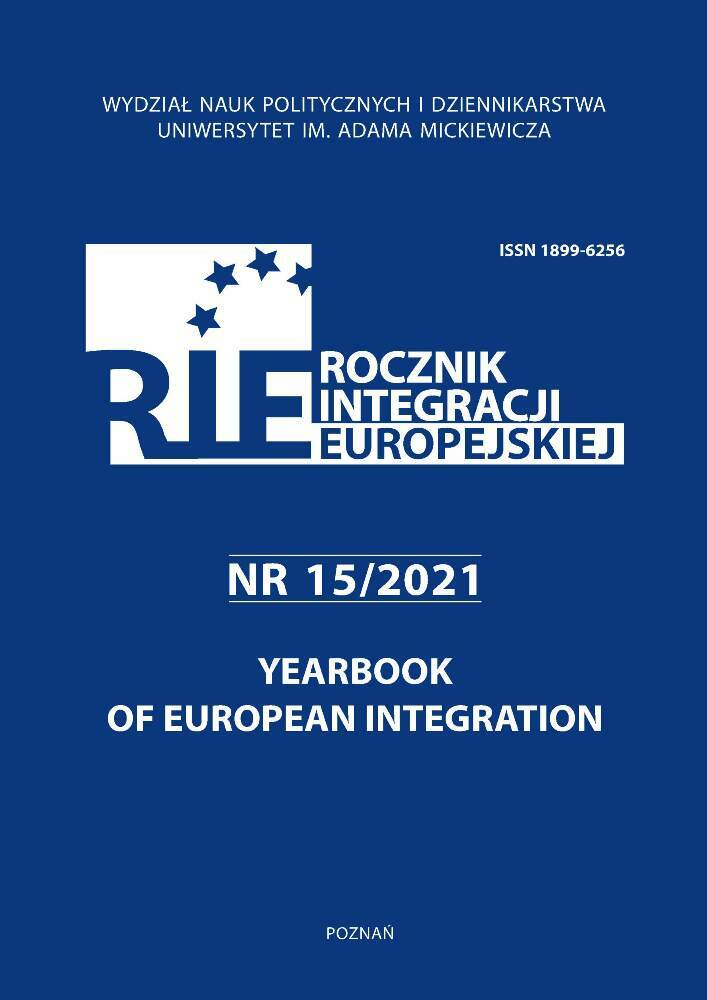Abstract
The article refers in its analysis to the perception of the values of the European Union from the human perspective as the highest good in the context of media changes and women’s protests in Poland at the end of 2020 and social activity demonstrating Poles’ attachment to the EU. At the beginning of the third decade of the 21st century, the important values emphasized in the public space are: the good of individuals, freedom of expression, political, social and economic equality concerning everyone, regardless of race, gender, sexual orientation, culture, religion, political sympathies. They are the basis for the functioning of the human community in this EU. New media, including extremely important social media, have become a space to defend these values.
The aim of this article is a practical analysis of the intersection of values with a traditional humanistic meaning, such as the culture of speech and public debate, with the struggle for the freedom to express one’s views and defend values using new media. Contrary to appearances, it is not contradictory. The language of protest of the young generation is not correct, it reaches to profanity, because very often it is not only a generational change, but a response to the language of politics and politicians. The field for analysis is the political and ideological dispute sparked on the Polish political scene. Analysis based on political science research and media science was based on researching the sources of both scientific literatures, the Internet and social media. The case studies are related to the women’s protest in Poland and other protests against government policy. Due to the nature of social media, there is no censorship, no control of forms of expression and content. It is a practical realization of the freedom and the right to express one’s views and protest. This form of freedom leads to a vulgarization of public life. Often, vulgarity, verbal, gestures, symbols and their use have their source in the observation of political life. According to the authors, this form of expressing thoughts, including the one serving to defend basic social values, requires redefining and understanding cultural contexts.
References
Badanie Eurobarometru z października 2021 r., https://europa.eu/eurobarometer/api/deliverable/download/file?deliverableId=77331, 21.10.2021.
Cele i wartości UE, https://europa.eu/european-union/about-eu/eu-in-brief_pl, 23.10.2021.
Cottle S., Nolan D. (2007), Global Humanitarianism and the Changing Aid Field: Everyone was Dying for Coverage, „Journalism Studies” 8 (6), s. 862–878, https://doi.org/10.1080/14616700701556104, 23.09.2021.
Cottle S. (2011), Media and the Arab Uprisings of 2011: Research Notes, „Journalism” 12(5), s. 647–659, https://doi.org/10.1177/1464884911410017, 23.09.2021.
Croteau D., Hoynes W. (2003) Media/Society. Industries, Images, and Audiences, Pine Forge Press, Thousand Oaks.
Digital 2020 Global Overview Report, https://wearesocial.com/blog/2020/01/digital-2020-3-8-billion-people-use-social-media, 2.07.2021.
Kelsey D., Bennett L. (2014), Discipline and Resistance on Social Media: Discourse, Power and Context in the Paul Chambers ‘Twitter Joke Trial’, “Discourse, Context and Media” 3, s. 37–45, https://doi.org/10.1016/j.dcm, 21.10.2020.
Neuman W. R. (2001), The Impact of the New Media, w: Mediated Politics, red. W. L. Bennett, R. M. Entman, Cambridge University Press, Cambridge.
Norris P. A (2000), Virtuous Circle Political Communication in Postindustrial Societies, Cambridge University Press, Cambridge.
Owen D. (2017), The State of Technology in Global Newsrooms. Research Report, International Center for Journalists, Washington, D.C., http://www.icfj.org/sites/default/files/ICFJTechSurveyFINAL.pdf, 27.04.2021.
Polacy o warunkowości w budżecie, Komunikat z badań CBOS nr 165/2020.
Rezolucja Parlamentu Europejskiego z 21 października 2021 roku rezolucję w sprawie kryzysu praworządności w Polsce i nadrzędności prawa UE (2021/2935(RSP).
Raport: 1116 aborcji w 2019 roku, https://www.rp.pl/Spoleczenstwo/200819353-Raport-1116-legalnych-aborcji-w-2019-roku.html, 17.08.2021.
Wyrok Trybunału Konstytucyjnego z dnia 22 października 2020 r. sygn. akt K 1/20, Dz. U. 2021, poz. 175.
Wyrok Trybunału Konstytucyjnego z dnia 7 października 2021 r. sygn. akt K 3/21, Dz. U. 2021, poz. 1852.

